Death came in March. Her heavy feathers matt, scaled legs pale and stiffly clenched, eyes closed blank. Somewhere beyond the leaded window of the utility room, where I crouched on the tiles beside the radiator, peering into a cardboard box containing a dead chicken, a Blackbird sparked up a tune and another morning began, Spring a little more present. I took a breath, closed the box, washed my hands, and went out to feed the rest of the flock.
Keeping animals has always been part of my life; I would collect woodlice and snails and caterpillars from the garden and make homes for them in discarded ice-cream tubs or coffee jars when I was 6 or 7. As a teenager I volunteered at a Living History Museum, spending days with the heavy horses, Rosie, Mac, Neville, and Maggie. I was always the one neighbours turned to to feed their cats whilst on holiday. I lavished attention on staffroom dogs, and scanned a wishfully proprietorial gaze over the sheep in the field beside the garden fence. But Mabel was the first pet I owned, and lost, since the rabbit I nagged my parents for aged ten. I’d had Jeremy The Rabbit for three years before he got poorly and had to be taken away to the vets, making me late for my first day at my new school. I’d cried buckets then; thinking somehow it was my fault he got sick, that I didn’t know enough, look after him well enough.
I didn’t cry with Mabel. There was an inevitableness and a peacefulness to her ending that dulled the emotion to a sadness and a kind of disappointment; keeping animals means at some stage or other loosing them too, I couldn’t be angry or hysterical – she had a good life, she was old, her last night was spent in comfort. There were other chickens needing tending to.
We gently laid Mabel’s body out beside the run, where the other hens could see her through the wire, so they could process her absence. Chickens are incredibly intelligent creatures, thought to possess the joint skills of ‘object permanence’ (the knowledge that something still exists even if it’s hidden) and recognition of up to one-hundred faces. They needed to know. Later, we buried her deeply in the sunny end of the garden.
The coop still feels a little empty. Mabel was a Light Sussex and large in both stature and personality, with white plumage that made her easy to spot. Always top of the pecking order, always demanding treats. She would look at me with disdain if I brought in fresh greens, taking only the choicest morsels and expecting me to provide grain or grapes like a toddler demanding sweeties. She never laid an egg in her time with us.
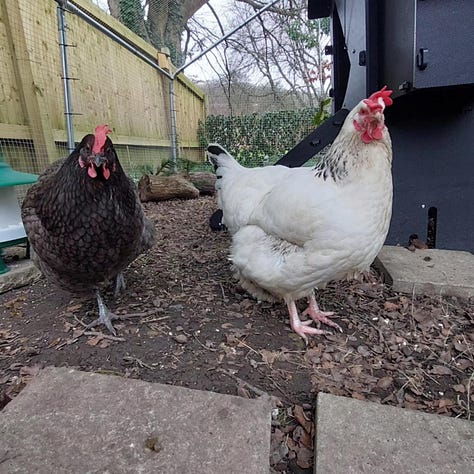
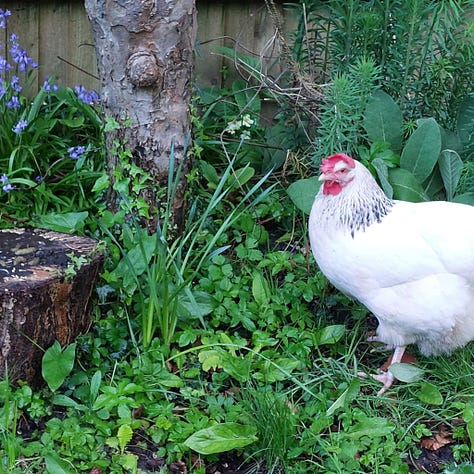
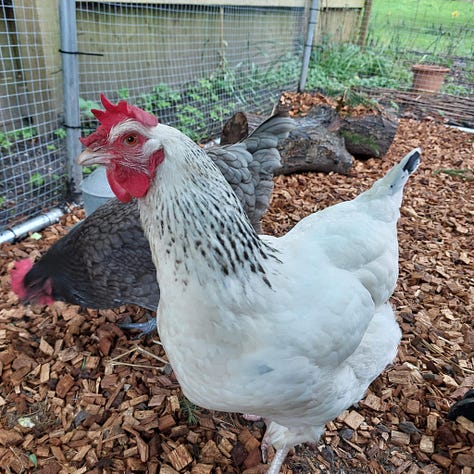
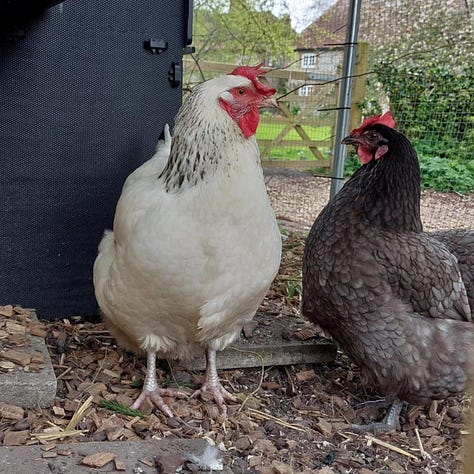
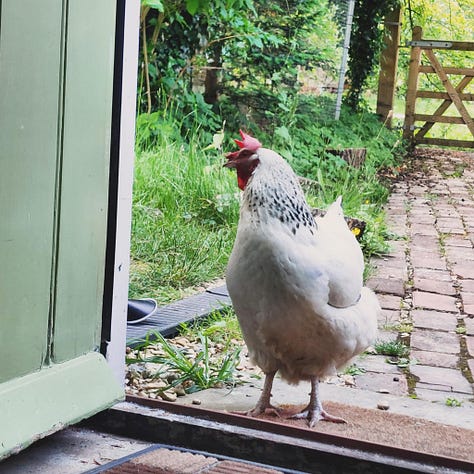
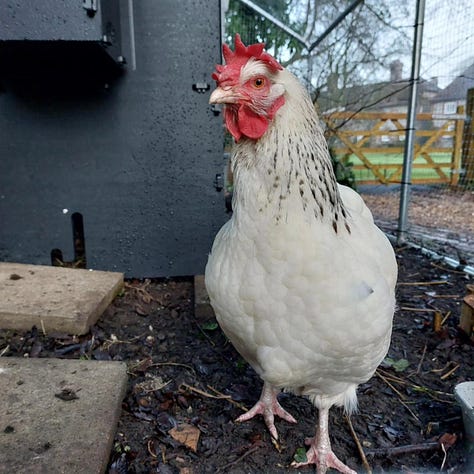
RIP Chicken.
I hope you’ll excuse the lack of regular posting this last week or two.
Normal service will return shortly.

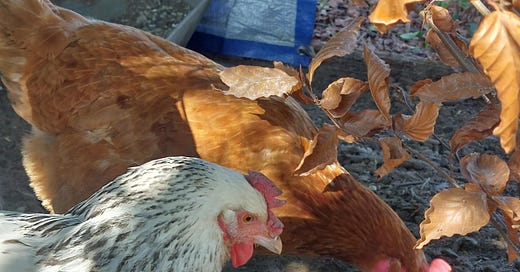



I am sorry to hear that your hen died. The Light Sussex are beautiful birds. I kept hens for a few years a while back, in another rented estate cottage, this time in Devon.
We had one bird, Rosa, who didn’t flock very well. We trimmed all the birds’ wings, just enough to unsettle their flight and keep them in their enormous run. However, Rosa could still flutter and off she went. We always got her back safely until the day we didn’t.
Walking on the quiet road near the cottage, a dog grabbed her and killed her. It was a stupid dog that was allowed to roam all day on the estate on its own. Obviously stupid owners too. Hours later, when my husband tracked it down with the help of Paddy the Jack Russell, it was still holding Rosa in its mouth. No idea what to do with her.
Sadly, she had been my daughter’s hen so there were a lot of tears all round. I wish I had shown her to the other hens. That makes perfect sense.